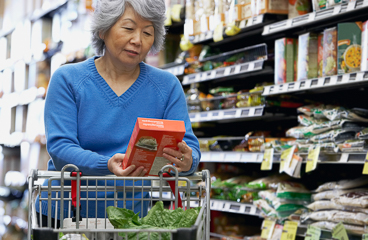Overview
When a person with a peanut allergy eats peanuts, their body reacts as if the peanuts are trying to cause
harm. It fights back by setting off an allergic reaction. A mild reaction may include raised, itchy patches of
skin that are red or the same color as the person's skin. These are called hives. A severe reaction may cause
hives all over, swelling in the throat, trouble breathing, nausea or vomiting, or fainting. This is called
anaphylaxis (say "ANN-uh-fuh-LAK-suss"). An anaphylactic reaction can be life-threatening and is a medical
emergency.
A good way to prevent an allergic reaction is to avoid the foods that cause it. Peanuts might be found in
foods such as chili and vegetable oils. An allergy doctor or a dietitian may be able to help you understand
which foods might be okay and what to avoid. Learn what to do if you or your child has a reaction.
Follow-up care is a key part of your treatment and safety. Be sure to make and go to all
appointments, and call your doctor if you are having problems. It's also a good idea to know your test results
and keep a list of the medicines you take.
How can you care for yourself at home?
During a mild reaction
-
Take a nondrowsy antihistamine, such as loratadine (Claritin), as your doctor recommends. Be safe with
medicines. Read and follow all instructions on the label.
During a severe reaction
-
Give yourself an epinephrine shot. Keep it with you at all times. Make sure it has not expired.
-
Call for emergency help. A severe allergic reaction can be life-threatening and is a medical emergency.
To prevent future reactions
-
Avoid the foods that cause problems. And try not to use utensils or cookware that may have been in contact
with food that you are allergic to. -
Teach your family members, coworkers, and friends what to do if you have a severe reaction to a food that
you are allergic to. -
Wear medical alert jewelry that lists your allergies. You can buy this at most drugstores.
When should you call for help?
Give an
epinephrine shot if:
|
|
|
After you give an epinephrine shot, call 911, even if you feel better.
Call 911 anytime you think you may need emergency care. For example, call if:
|
|
|
|
|
|
Call your doctor now or seek immediate medical care if:
|
|
|
Watch closely for changes in your health, and be sure to contact your doctor if:
|
|
|
Current as of: October 24, 2023
Content Version: 14.0
Care instructions adapted under license by your
healthcare professional. If you have questions about a medical condition or this instruction, always ask
your healthcare professional. Healthwise, Incorporated disclaims any warranty or liability for your use of
this information.


